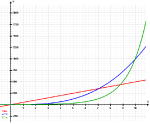Is your work meaningful?
 Meaning (as in “meaning in life” or “meaningful work”) is obviously important. It’s important to a person for its own sake. It also affects other people—for example, it could be a motivational factor, affecting purpose, goals, and behavior. Most adults spend most of their waking hours working, so it’s important for people to find meaningful work, and to find more meaning in the work they’re currently doing.
Meaning (as in “meaning in life” or “meaningful work”) is obviously important. It’s important to a person for its own sake. It also affects other people—for example, it could be a motivational factor, affecting purpose, goals, and behavior. Most adults spend most of their waking hours working, so it’s important for people to find meaningful work, and to find more meaning in the work they’re currently doing.
A few psychologists are taking on the difficult task of using scientific methods to clarify the fuzzy topic of “meaning.” Michael F. Steger has done some research work in this area, and concludes that meaningful work has three, central components:
First, the work we do must make sense; we must know what’s being asked of us and be able to identify the personal or organizational resources we need to do our job.
Second, the work we do must have a point; we must be able to see how the little tasks we engage in build, brick-by-brick if you will, into an important part of the purpose of our company.
Finally, the work that we do must benefit some greater good; we must be able to see how our toil helps others, whether that’s saving the planet, saving a life, or making our co-workers’ jobs easier so that they can go home and really be available for their families and friends.
So, for our work to be meaningful we have to:
1. Understand what to do and how to do it
2. Know how the things we do fit into the larger picture
3. See how that creates a benefit for someone
A case can be made:
[a] that if people learn about the processes within their company or institution, they’re more likely to see how to do their jobs well, how it fits with what other workers are doing, and how the end product creates value, and
[b] that this can lead to a sense of meaning, which in turn makes people better at what they do.
Patrick McKnight and Todd Kashdan, in their theory of “purpose in life,” talk about “meaning” in the larger sense, pointing out that:
“Living in accord with one’s purpose…offers that person a self-sustaining source of meaning through goal pursuit and goal attainment” (p. 242).
A sense of purpose leads you to make goals and then reach them. And you recognize that it has meaning and value. Also,
“Meaning probably drives the development of purpose. Once a purpose becomes developed, purpose drives meaning.” (p. 243).
It works both ways – meaning and purpose feed each other. But probably mostly in the order McKnight and Kashdan identify.
Can this be applied more narrowly to the world of work? Once you know what to do, how it fits into the larger picture, and how that creates benefit, can the meaning you derive help give you a sense of purpose? With that sense of purpose can you then set and attain goals that give you a greater sense of meaning in your work?
“Purpose” has been a key research interest of mine, so I’ll certainly talk about it more in a future post, especially in light of its relationship to “meaning.”
 I can’t help wondering if there are other things that could contribute to meaning in work. Often when you’re good at something, you like doing it more. I would think this could lead to a feeling that “this is what I’m supposed to be doing,” contributing to sense of meaning. Positive emotions are a better foundation than negative ones for broadening and building, and lead to more effectiveness in work.
I can’t help wondering if there are other things that could contribute to meaning in work. Often when you’re good at something, you like doing it more. I would think this could lead to a feeling that “this is what I’m supposed to be doing,” contributing to sense of meaning. Positive emotions are a better foundation than negative ones for broadening and building, and lead to more effectiveness in work.
Norman Augustine, former CEO of Lockheed Martin, presents a similar idea—of these two intertwined factors contributing to meaning in work:
I’ve always wanted to be successful. My definition of being successful is contributing something to the world…and being happy while doing it…. You have to enjoy what you are doing. You won’t be very good if you don’t. And secondly, you have to feel that you are contributing something worthwhile…. If either of these ingredients are absent, there’s probably some lack of meaning in your work.
Then there’s the other intertwined, bi-directional dynamic:
- Happier, more effective workers developing more of a sense of meaningfulness in their work, and
- People who feel their work is meaningful becoming happier and more effective.
Michael F. Steger concludes:
A growing body of evidence shows that meaningful workers are happy workers, more committed workers, and, in some tantalizing ways, better workers.
References:
Steger, Michael F. (2009). “Meaningful Work.” The Meaning in Life: Seeking a Life that Matters (Psychology Today blog) June 9, 2009.
McKnight, Patrick E. & Kashdan, Todd B. (2009). “Purpose in Life as a System That Creates and Sustains Health and Well-Being: An Integrative, Testable Theory.” Review of General Psychology. American Psychological Association. September 2009, Vol. 13, No. 3, 242–251.
Csikszentmihalyi, Mihaly (2008). “Creativity, fulfillment and flow.” TED Talks (Conference on Technology, Education, and Design). October 24, 2008.
![[Circle]](http://www.meaningandhappiness.com/pictures/GoldCircle36i.png)


